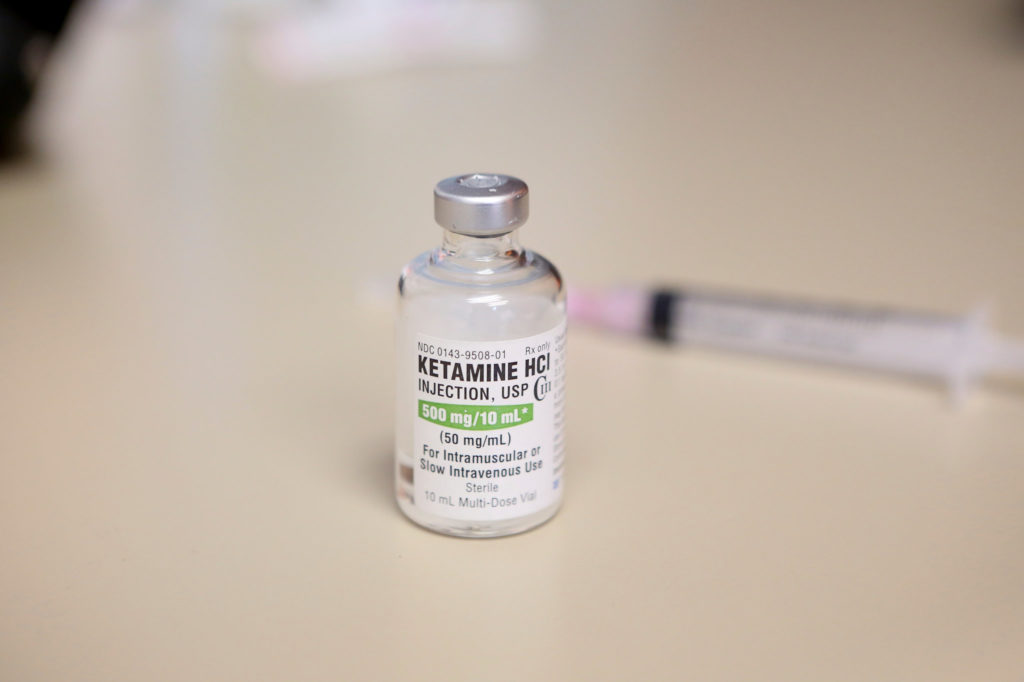Novel Depression Treatment in the News,
February 15, 2019

In a milestone for the field, the new drug Esketamine is expected to be approved by the FDA
Many of you have seen in the headlines that a new antidepressant is expected to soon be approved by the Food and Drug Administration.
The New York Times reported yesterday that an advisory panel at the agency has voted in favor of recommending approval of the new drug, the nasal spray Esketamine, to treat severely depressed patients. Developed by Johnson & Johnson, Esketamine is a form of ketamine, an anesthetic for humans and also a powerful sedative for horses. (Click here for the story.)
If approved, Esketamine would provide patients that have failed more than two depression treatments with a rapidly-acting drug that is effective in a matter of days. Currently available antidepressants can take several weeks before they are effective. Its rapid action makes ketamine a valuable treatment for suicidal depression.
HDRF scientists were not involved in the drug’s development—that work occurred 10-20 years ago well before HDRF’s Depression Task Force was created. However, HDRF’s research team is involved in efforts to understand ketamine’s mechanism of action in the brain and refine the way the drug is administered.
“Esketamine represents the first new category of medication for depression in over thirty years, so we are all very excited by this milestone” said Dr. Eric Nestler, Director of the Friedman Brain Institute at Mount Sinai and Chair of the Depression Task Force.
“However,” he added, “We need to better understand Esketamine’s impact on brain chemistry and long-term side effects. We need to better understand how the drug works in different populations of patients. And we need to better understand how ketamine exerts its rapid antidepressant effects so that orally available medications can be developed.”
We are excited to share this news with you and look forward to more research progress on ketamine and other novel treatments for resistant depression.

